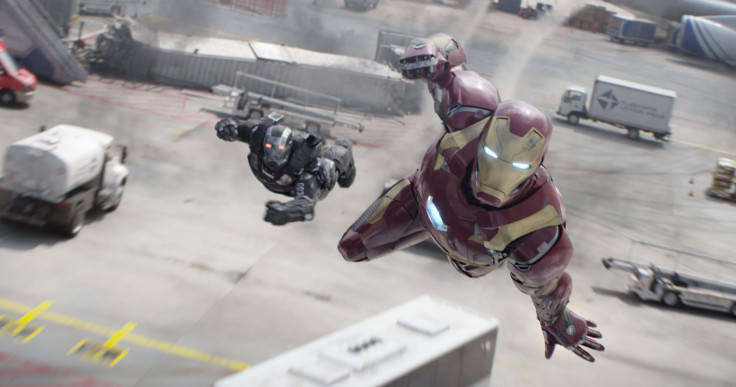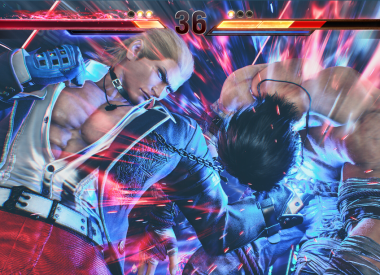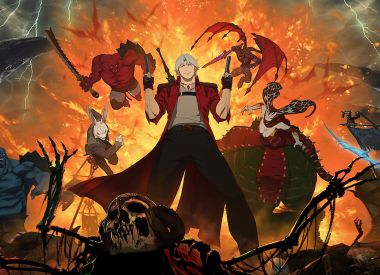When superheroes fight each other, it’s often contrived and destructive to the characters. The temptation to knock them together too often relies on contrivance and stupidity, with two heroes who would otherwise be working together temporarily at odds because of misunderstandings and hotheadedness. These fights, whether between Cyclops and Wolverine or Batman and Superman, make them smaller, reducing the qualities that were meant to define their heroism to a peabrain, the body instead operating on unthinking violence and ego, narrowing them to everything bad and reductive about superheroes as their better qualities fall away.
That Captain America: Civil War avoids that trap, maintaining utterly the core essence of each character, is its greatest triumph. When Captain America and Iron Man come to blows, each unable to stop until the other is broken, Civil War takes on a tragic dimension made weightier by everything that came before. Captain America: Civil War is the ultimate payoff on a very long investment, their past camaraderie and deep cinematic backbones turning the dissolution of the Avengers into one of the most gut-wrenching conflicts our pop culture could possibly deliver.
Even with the best superhero movies qualifications are often required. The Dark Knight is a fantastic crime saga for a superhero movie. Captain America: The Winter Soldier captures the sophisticated maneuverings of an espionage thriller until it becomes a superhero movie and someone has to punch aircraft carriers out of the sky.
No such qualifications are needed with Captain America: Civil War. From its opening, with the Avengers chasing Crossbones through Lagos, to its showstopping airport battle royale, Captain America: Civil War combines the best action ever seen in a superhero movie with a stuffed plot that actually mostly makes sense.
Divided over the Sokovia Accords, a U.N. treaty to bring the Avengers under their authority, a philosophical schism becomes practical real fast after Bucky Barnes (or someone framing him) bombs the conference. This sends multiple factions after him, including King T’Challa of reclusive Wakanda, kitted out with his vibranium suit. And while Zemo’s background maneuverings may be a little abstruse, he and every other character in Civil War pursue clearly defined agendas that can only emerge from well-drawn characters with at-odds motivations.
Captain America: Civil War has solved the problem of the overstuffed superhero sequel, making movies like Spider-Man 3 and Batman v Superman: Dawn of Justice look downright amateurish. It turns out the solution all along was simply “do the really hard work to make good characters with clear motives instead of shrugging and hoping people will get the gist.”
The sheer number of moving parts means Captain America: Civil War is more complicated than most Marvel movies. While anyone could follow along, the events of the movie stem from happenings in both Captain America: The Winter Soldier and Avengers: Age of Ultron. Seeing both before seeing Civil War isn’t required, but definitely recommended, because Civil War is downright dense.
With so many characters and action scenes, the emotional development required could best be described as compact. With both Cap and Iron Man confronted by their pasts, it could seem contrived were it not so expertly handled. In this, Captain America: Civil War succeeds by being straightforward and clear. Your heart may not be stirred by T’Chaka’s relationship with T’Challa, or Sharon Carter's eulogy for Peggy, but Civil War lays down the emotional foundation for what’s to come with an efficiency that just works.
While Marvel movies, Captain America: The Winter Soldier in particular, sometimes felt a little too eager to reflect, formlessly, real-world politics, Civil War earns its moments. As good intentions distort into Guantanamo-like detentions, the slippery slope between security and tyranny becomes an organic part of this world, rather than a coat of “relevant” paint.
Not only does Captain America: Civil War reach levels of heartbreaking drama unachieved by any previous superhero film, it’s also an action movie miles above standard studio output. In recent years there’s been a sharp divide in action, with Hollywood delivering explosions, guns and too-close combat and a yearly indie breakout or two, like The Raid, delivering the more inventive choreography that the studio will reprocess for subsequent years. Captain America: Civil War is both big spectacle and endlessly satisfying on a micro-level. The number of *gasp* moments became uncountable — Bucky jumping flights of stairs with torn railings, Black Panther’s kicks, the gleeful and endlessly inventive ways Cap uses his shield.
Despite being the most serious Marvel movie, Captain: America Civil War keeps the Marvel movies’ humor, endearing us more and more to these familiar characters, even as they butt heads. Here, Civil War demonstrates a remarkable control over its tone. Only Paul Rudd’s presence upsets the balance occasionally, with his jokes given too much air or telegraphed, even when everyone else in the cast has just as many laugh-lines.
And I haven’t even mentioned Spider-Man yet. Like Black Panther, his entry into the Marvel pantheon is seamless and utterly devoid of the over-explanations we’ve become so used to in the genre. At one point Spider-Man is given the opportunity to explain his backstory, only to be cut off by Tony Stark, a moment that’s both funny and a genuine relief to an audience all-too familiar with radioactive spiders.
Captain America: Civil War is the sprawling, engaging, remarkable superhero movie the entire genre has been building toward. It’s the culmination of years of a work and an engaging action-thriller on its own merits, like a world-hopping Bourne movie with super powers. It is the superhero movie that justifies the grand Marvel experiment, paying off everything that has come before.


















